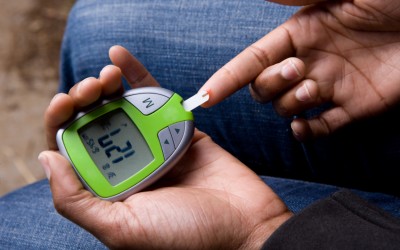Blood sugar is an indicator of the amount of glucose in the blood. The amount of glucose in the blood tells how well certain processes of the body are being carried out. Especially with persons living with diabetes, it is important to monitor one’s blood sugar constantly.
Diabetes occurs in two types, and they type of diabetes determines the way one monitors their blood sugar. Persons with any of the types of diabetes require long-term medical attention and monitoring of blood glucose is one of the intervention measures.
Diabetes type 1
Diabetes type 1 is characterized by the lack of insulin in the body. Insulin controls the way glucose is converted to energy. The pancreas of persons with type 1 diabetes cannot produce insulin, and this leads to a deregulation of the way the body metabolizes glucose. Persons with diabetes type 1 are advised to check their blood sugar regularly. Persons with type 1 diabetes have to take insulin regularly because they do not produce insulin naturally.
Persons with diabetes should monitor their blood glucose between four and ten times a day. The essential times for checking blood glucose for persons with type 1 diabetes include before and after a meal or snack, before and after exercise routines, before one retires to bed and sometimes at night.
The rate at which a person with type 1 diabetes checks their blood sugar is dependent on several factors including change of medication and illnesses.
Type 2 diabetes
Type 2 diabetes is both characterized by the inability of the body to produce sufficient glucose and insulin resistance. Thus, persons with diabetes type 2 do not have sufficient insulin, and the available insulin does not function properly because of insulin resistance. The frequency at which persons with type 2 diabetes measure their blood glucose depends on the management measure they employ and the type of insulin they take.
If one takes oral medications that are not insulin, they will not need to check their blood sugar level daily. However, if diabetes type 2 is managed by insulin, one would need to check their blood sugar at least twice a day, before eating in the morning and retiring in the evening.
It is important to secure the blood sugar level of a person living with diabetes to prevent the different complications that could arise with lowered or increased blood sugar level known as hypoglycemia and hyperglycemia respectively.
When the blood sugar level gets to any of the extremes, the environment in which the organs reside is distorted, and this could lead to malfunctioning of the different organs of the body.
Complications that could arise when persons with diabetes do not monitor their blood sugar level include erectile dysfunction, kidney problems and heart attacks. Apart from persons with diabetics, pregnant women and persons who struggle with controlling their blood sugar level should routinely monitor their blood sugar level to prevent complications.
*Need help from an urgent care clinic in Miami? Primary Medical Care Center is only a phone call away: 305-751-1500
